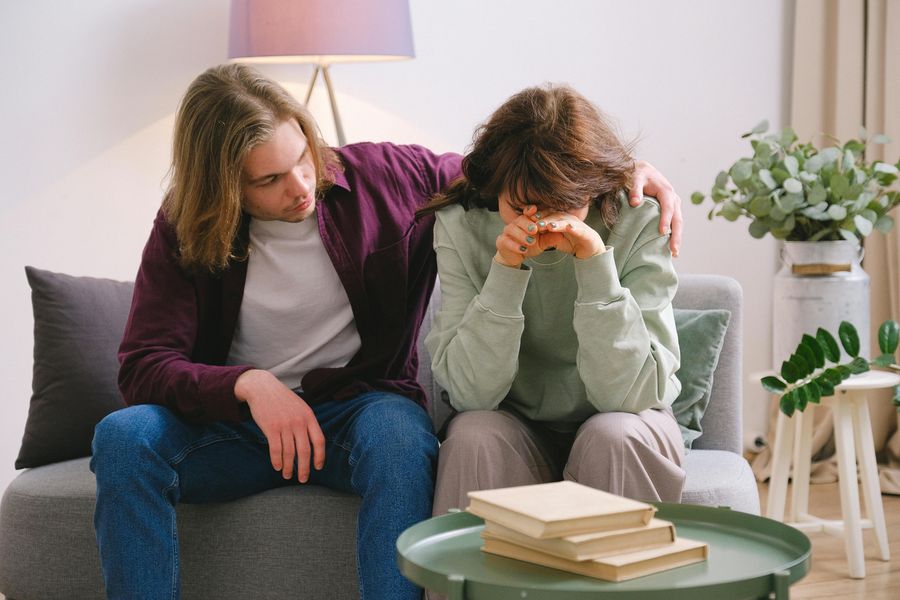Toxic Relationships: Understanding the Dynamics and Protecting Yourself
Have you ever been in a relationship that drained you emotionally and left you feeling depleted and frightened? One where your partner turned out to be controlling, selfish, and quick-tempered?
If you have, chances are you have experienced a toxic relationship.
A toxic relationship is defined as a damaging and harmful dynamic between two people characterized by patterns of toxic behavior.
In other words, it is a relationship that does not bring out the best in either person and often leads to emotional and physical damage.
What distinguishes a toxic relationship from a healthy one?
A healthy relationship is built on mutual care, sacrifice, self-respect, and compassion. Both partners feel secure in expressing their needs and boundaries and avoid attacking or belittling each other.
In contrast, a toxic relationship is marked by insecurity, self-centeredness, domination, and a lack of empathy.
Common Types of Toxic Partners
-
The quick-tempered partner:
This type of partner is easily provoked, and their anger can be explosive. They might use verbal or physical aggression to control and intimidate you, leaving you feeling scared and threatened.
-
The depreciator/belittler:
This kind of partner uses insults, criticism, and sarcasm to put you down and make you feel small and powerless.
They may make you doubt yourself and undermine your self-esteem.
-
The overdependent partner:
This partner relies on you for their emotional and practical needs and is unwilling to develop their own independent life. They might guilt-trip you into staying with them and make you feel responsible for their happiness.
If you have experienced any of these types of toxic partners, you may have endured significant emotional and physical damages. Toxic relationships can have debilitating effects on your health, leading to chronic stress, anxiety, and even physical illnesses.
This can cause a considerable strain on your well-being and make it more difficult to maintain healthy relationships in the future. So, what should you do if you find yourself in a toxic relationship?
Taking Action
The first step is to recognize the situation for what it is. Acknowledge the harmful behavior and the way it makes you feel.
It is okay to feel shame and denial about your situation, but it is essential to have the courage to take action. Healing from a toxic relationship requires courage and vulnerability.
Seek out positive people who can support you through this difficult time, whether that’s friends, family, or a professional therapist. It is also crucial to take a break from dating or any romantic relationships and focus on rebuilding your self-esteem and self-worth.
Signs of Toxic Relationships: How to Recognize the Red Flags
Being in a toxic relationship can be a traumatizing experience that leaves you feeling distraught, overwhelmed, and unable to cope. If you have ever been in a relationship that left you feeling anxious, guilty, or worthless, you might be in a toxic relationship.
Common Signs of Toxic Relationships:
-
Dysfunctional behavior of the toxic partner:
In a toxic relationship, your partner might exhibit a hot temper, use violence, physical or mental abuse to control and intimidate you.
They might also use threats, intimidation, or manipulation to make you comply with their needs and desires.
-
Partners’ behavior and attitude:
In a toxic relationship, your partner might blame and criticize you, depreciate and belittle your achievements, cut out your support system, and use passive-aggressive behavior to undermine your self-esteem and self-worth.
-
Types of toxic persons:
In a toxic relationship, your partner might exhibit possessive behavior, become paranoid and suspicious of your actions, be non-dependable, over-react to minor issues, deflect their actions and blame you for their problems, or use guilt to manipulate you into doing things.
If you are experiencing any of these signs, you may be in a toxic relationship.
However, sometimes it can be hard to recognize the red flags. Sometimes, we might rationalize our partner’s behavior, thinking that they are going through a tough time, or that things will get better if we stick it out.
However, rationalizing your partner’s toxic behavior is a mistake. It is imperative to identify the symptoms of a toxic relationship early on, so you can take the necessary action to protect yourself from emotional and physical harm.
Leaving Toxic Relationships: How to Break Free
Leaving a toxic relationship can be challenging, especially if you have invested a lot of yourself in the relationship.
However, it is important to remember that leaving a toxic relationship is not only possible, but it is also necessary for your well-being and happiness.
Steps to Break Free:
-
Stop making excuses:
If you think you are in a toxic relationship, it is time to stop rationalizing your partner’s behavior. Recognize your partner’s toxic actions and take them seriously.
-
Firmly stick to your decision:
Once you have decided to leave a toxic relationship, it is crucial to be firm and resolute in your decision.
Do not waver, and do not be manipulated or coerced back into the relationship.
-
Take care of yourself:
Leaving a toxic relationship can be emotionally draining, so it is important to take care of yourself. Seek support from friends and family, engage in activities that bring you joy and comfort, and consider seeking professional help from a therapist.
-
Take time:
It takes time to heal from a toxic relationship.
Do not rush into a new relationship, and give yourself time to process your emotions and feelings.
In conclusion, toxic relationships are destructive and can have severe consequences.
If you find yourself in a toxic relationship, it is essential to recognize the warning signs and take steps to protect yourself from further emotional and physical harm. Remember, breaking free from a toxic relationship takes time, effort, and courage, but it is worth it in the end.
In conclusion, toxic relationships are harmful and damaging, and it is crucial to recognize the signs early on. By identifying toxic behaviors and taking steps to protect yourself, you can break free from the cycle of emotional and physical harm.
Remember, the healing process can take time, but it is essential to take care of yourself and seek support from friends, family, and professionals. Above all, it is important to prioritize your well-being and happiness, and you deserve to be in a healthy and loving relationship.



